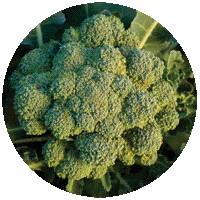EU: Patent Exemptions
The European Parliament wants to protect European breeders from excessive patent protection, 
Giving Growers More Choice
“This is a positive step forward for independent seed companies and, ultimately, the growers they serve,” says Greg Ruehle, CEO of the U.S.-based Independent Professional Seed Association, in reference to the recent agreement between Syngenta and Dow AgroSciences that will allow independent seed companies to have access to two reduced refuge trait stacks, making trait stacks more widely available to U.S. and Canadian corn growers. “It not only provides growers with more options, but they can now purchase that technology from their local independent seed supplier—a win-win for everyone involved,” adds Ruehle.
Checking in on Check-offs
“75 per cent of producers believe that the wheat and barley check-offs are important to producers for variety research, according to a recent survey of western Canadian farmers,” says Garth Patterson, executive director of the Western Grains Research Foundation. Overall, the producers surveyed have a positive perception of WGRF and highly value farmer-directed agricultural research. “In fact, 89 per cent of producers believe it is important to have a research-oriented organization like WGRF,” says Patterson.
ISF Revises View on IP
“For the past two years, the International Seed Federation Intellectual Property Committee has continued its work on the revision of the ISF View on IP. Those who are involved in the discussions around IP know this topic is a sure guarantee for animated debates and strong differences of opinion, and this revision process was no different. I am proud to see that trenches have been closed, opinions have come closer and compromises have been made. By the time the position paper reaches the General Assembly at the World Seed Congress in Rio, it will have gone through three rounds of consultation to all ISF members, ensuring that everyone has had enough opportunity to study the paper well and provide feedback.”—Marcel Bruins of ISF
GM Crops: Measuring the Benefits
According to a recent report on crop biotechnology impacts by PG Economics, considerable economic and environmental benefits are being delivered to the farmers and citizens of countries where the technology is used. “Over the 15-year period covered in the report, crop biotechnology has consistently provided important economic and production gains, improved incomes and reduced risk for farmers around the world that have grown GM crops,” said Graham Brookes, director of PG Economics. “The environment in user countries is benefiting from farmers using more benign herbicides or replacing insecticide use with insect-resistant GM crops. The reduction in pesticide spraying and the switch to no-till cropping systems is also resulting in reduced greenhouse gas emissions. The majority of these benefits are found in developing countries.”














